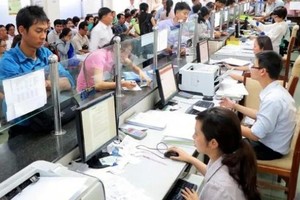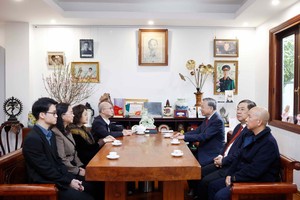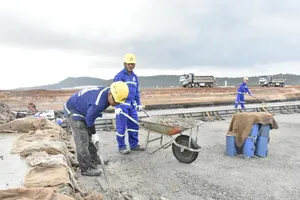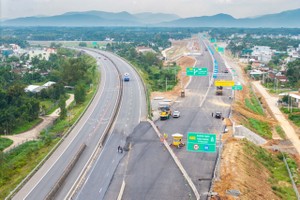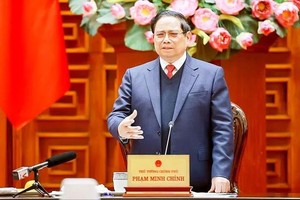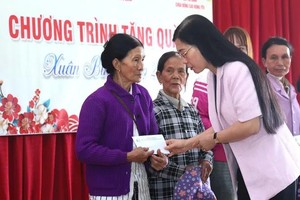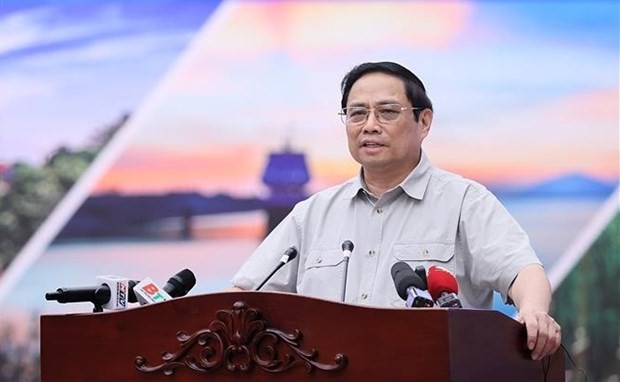 |
Prime Minister Pham Minh Chinh speaks at the event (Photo: VNA) |
In the immediate future, PM Chinh, who is also head of the council, said the focus should be placed on three strategic breakthroughs linked to three growth drivers of consumption, investment, and export. Efforts must be made to address transportation bottlenecks, protect the living and ecological environment, and deal with housing issues for workers and low-income earners, and slums in urban areas.
The southeast region covers an area of 23,551 sq. km, accounting for 7.1 percent of the country's total. It has a population of around 18.8 million people or 18.9 percent of the national. As the biggest economic hub of the country, it holds a significant position and role in national socio-economic development.
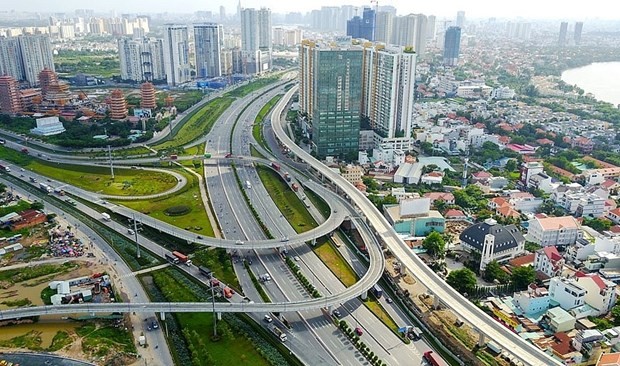 |
Illustrative image (Photo: congthuong.vn) |
Last year, its gross regional domestic product (GRDP) made up around 31 percent of the country’s total while exports and budget revenue made up about 35 percent and 38 percent of the country's total figures, respectively. Its urbanization rate reached 66.5 percent, which was 1.8 times the national average.
According to the Politburo’s resolution and the Government’s action program, the southeast region is expected to become a dynamic and fast-growing area, a hub of sci-tech and innovation, industry and logistics, and an international financial center with high competitiveness in the region. It also strives to take the lead in renewing the growth model and digital transformation.
The region aims for sustainable development in tandem with protecting the environment and adapting to climate change. It seeks to allocate and utilize natural resources in an effective manner while preserving historical, cultural, and natural heritages.
The Ministry of Planning and Investment was assigned to accelerate the planning of the region to ensure strategic connectivity and infrastructure development that creates a unified economic space among the localities within its scope.
The PM suggested considering the establishment of a Regional Infrastructure Development Fund to allocate separate funding for the interconnected sectors and devise policies to pool social resources for collaborative activities.
Regarding regional and provincial planning, he asked the council members to complete relevant procedures to promptly submit relevant plans to competent authorities for approval, thus laying a foundation to coordinate regional connectivity activities.
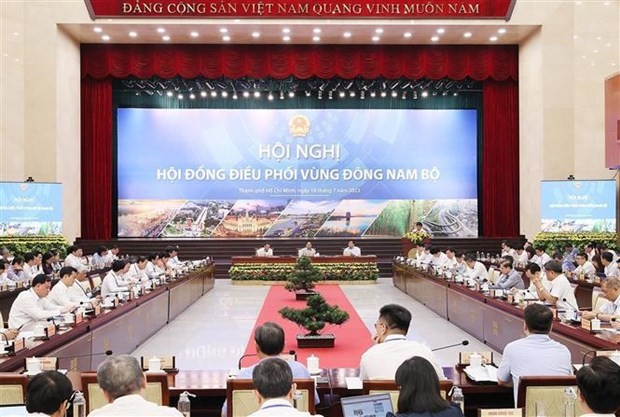 |
At the event (Photo: VNA) |
With determination, unity, and dedication of ministries, agencies, and localities, as well as support from experts, scientists, research institutes, and relevant partners, PM Chinh said he believes that the region will fulfill its assigned tasks for prosperous development.
The conference heard proposals to establish startup centers and promote innovation and artificial intelligence in Ho Chi Minh City and Binh Duong and Dong Nai provinces. Delegates also discussed solutions to addressing environmental issues and climate change adaptation, with a focus on protecting the environment in Dong Nai and Saigon river basins; digital transformation, and the establishment of a regional data center.
They also proposed solutions to developing industrial, urban, service, and logistic belts along Belt 3 and Belt 4 of Ho Chi Minh City. Specific mechanisms and policies were also suggested to develop transportation infrastructure, green urban areas, and financial centers, among others.






